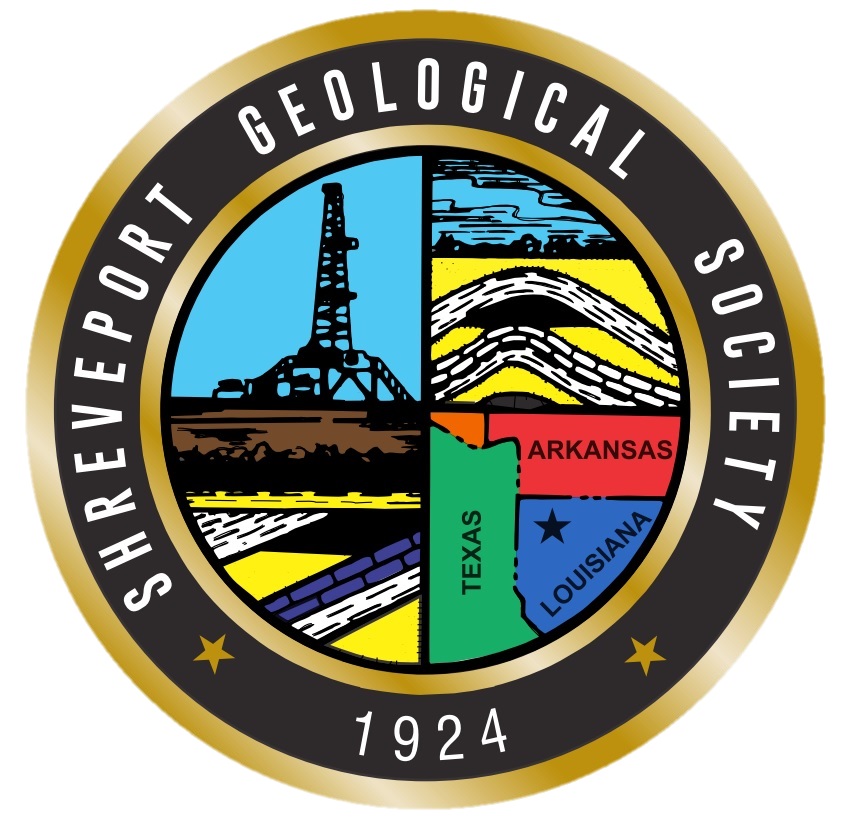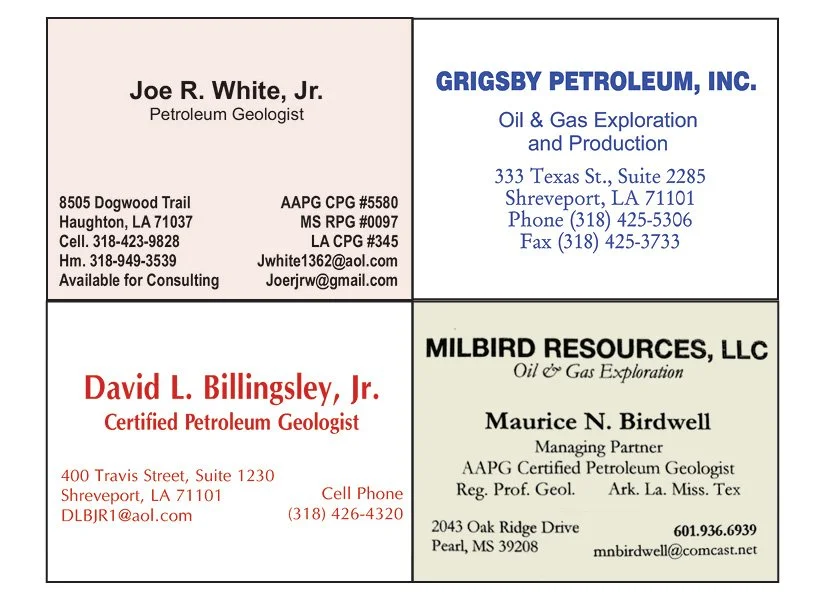The Petroleum Club of Shreveport, 15th floor
Cost: $20, Children 10 and under $8
We encourage members to invite guests, spouses, and friends to any of our meetings.
If you’d like a seat, kindly use the form below to make your reservation by the preceding Friday.
Biography
David M. Abbott, Jr.
AAPG Distinguished Lecturer for Ethics
David Abbott
Mr. Abbott, AIPG Certified Professional Geologist-4570, has been writing and speaking about geoscience ethics for over 30 years. He compiles the “Professional Ethics & Practices” column for the American Institute of Professional Geologists’ The Professional Geologist (168 columns published to date). He has authored over 50 papers on geoscience professional ethics and has given a number of short courses and webinars on geoscience ethics. He chaired AIPG’s Ethics Committee for 20 years and serves on the Australasian Institute of Mining & Metallurgy’s Ethics Committee. He was a member of the committees that drafted the American Geosciences Institute’s AGI Guidelines for Professional Ethical Conduct issued in 1999 and 2015. He served as a member of the Executive Committee of AAPG’s Division of Professional Affairs for 6 years and received DPA’s Certificate of Merit for his service as Editor of the DPA Correlator.
Mr. Abbott is also a consulting economic geologist specializing in the due diligence review and audits of mineral reserve and resource estimates; and the review of mineral exploration and development programs for precious, base metals, and industrial minerals. Prior to becoming a consultant in 1996, he spent 21 years as a geologist for the US Securities & Exchange Commission (SEC), where he reviewed the natural resource aspects of public offerings and the investigated the natural resource aspects of enforcement cases, usually involving unfounded claims that reserves existed.
Mr. Abbott is an active member of the SME’s Reserves and Resources Committee, which developed the SME’s A Guide for Reporting Exploration Information, Mineral Resources, and Mineral Reserves (the 1991, 1999, 2007, 2014, and 2017 editions). He has authored numerous papers and given numerous speeches on the interplay between geology and the securities laws, particularly those relating to the definition of reserves, and on other aspects of professional geological practice. He is a Fellow of the Australasian Institute of Mining and Metallurgy, the Geological Society of London, the Society of Economic Geologists, and the Geological Society of America. He is a member of the American Association of Petroleum Geologists, the Rocky Mountain Association of Geologists, and the Mining & Metallurgical Society of America. He received an A.B. in earth sciences from Dartmouth College and an M.S. in geology from the Colorado School of Mines. He is a licensed professional geologist in Wyoming, Texas, and Utah and holds the titles European Geologist and Chartered Geologist (by the Geological Society of London and The AusIMM).
Abstract
Honesty is a basic principle of geoscience ethics. We all use models but all models are incomplete and flawed. Nevertheless, some models are useful in assisting understanding of a particular system. Honesty requires disclosure of the limitations and deficiencies of a particular model. Modern computer modeling permits examination of complicated models but these models are still not “the truth.” Professional judgement is still required in determining the utility of a model and to guard against self-deception.
This talk also covers the 1 hour ethics requirement for LBOPG.







































